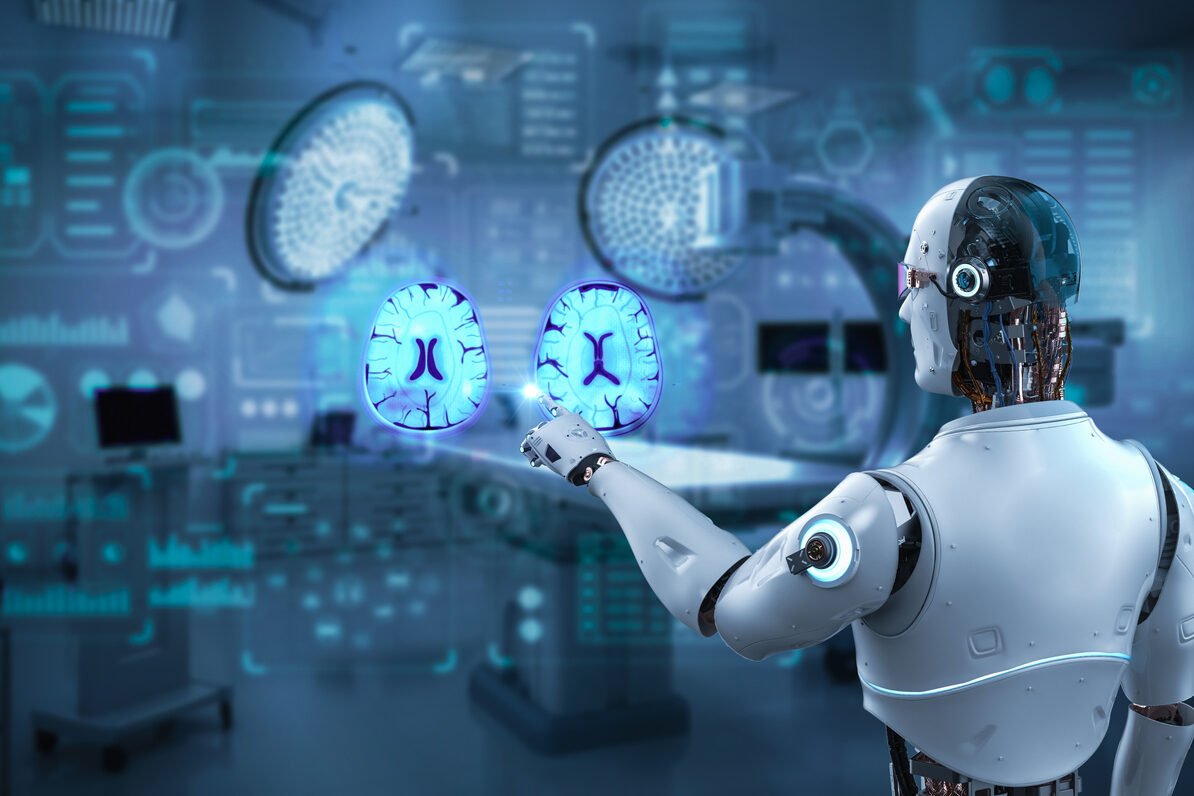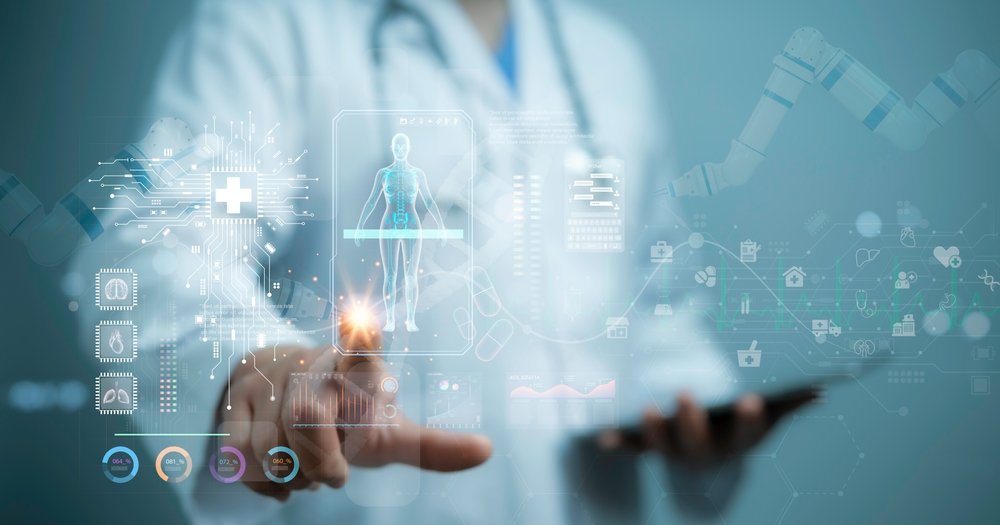AI Is Getting Better at Spotting What Humans Miss

Modern diagnostic tools powered by artificial intelligence are now identifying patterns in medical scans, blood tests, and patient records that even seasoned doctors might overlook. These systems can sift through thousands of variables in seconds and catch subtle abnormalities that might take a human hours — or never be noticed at all. For certain types of cancer, eye diseases, and rare genetic disorders, AI has already shown greater accuracy than human practitioners in early trials.
This has led many physicians to start relying on AI not just as a backup, but as a primary tool for diagnosis. The shift makes sense — who wouldn’t want the most precise answer when it comes to health? But the growing trust in machine-generated results also raises ethical questions. When a human doctor disagrees with the algorithm, whose judgment should win out? And if a diagnosis goes wrong, who takes responsibility — the machine, or the person who followed its advice?
The Data Behind AI Diagnoses Isn’t Always Clean
AI models in healthcare are trained on massive data sets — from millions of X-rays to countless lab results. The idea is that with enough examples, the algorithm will learn how to accurately identify diseases across different patients. But the reality is that medical data isn’t always perfect. It’s often incomplete, biased, or based on outdated protocols.
That means an AI trained on flawed data could learn to repeat those flaws, embedding subtle inaccuracies into its decision-making process. Worse, if the AI produces a diagnosis that aligns with a known bias — say, underdiagnosing certain conditions in women or people of color — it might be trusted more than a human doctor who would have pushed back. The veneer of objectivity can be misleading, especially when the data underneath reflects the same human errors we’ve been trying to avoid.
Doctors Are Starting to Defer to AI Even When They Shouldn’t
As AI continues to prove its usefulness, something surprising is happening in hospitals and clinics: doctors are becoming hesitant to challenge its findings. In some cases, physicians who spot inconsistencies or red flags are still deferring to the AI’s output, afraid of making a mistake that contradicts the system. This shift in confidence is subtle, but it’s starting to change the nature of medical decision-making.
Medicine has always been part science, part art, a careful mix of evidence and intuition. But when AI offers a confident, data-backed diagnosis, doctors may feel pressure to follow it even if their instincts say otherwise. This growing dependence on machine insight risks sidelining valuable clinical experience. If human judgment is slowly being replaced instead of enhanced, patients could end up with care that is more robotic than responsive.
The “Black Box” Problem Makes AI Hard to Question
One of the most troubling aspects of AI in medicine is the lack of transparency. Many diagnostic algorithms function as black boxes, they produce results, but don’t offer clear reasoning behind them. Even the developers who built the models can’t always explain why the system reached a particular conclusion.
For doctors trained to base their decisions on traceable evidence and peer-reviewed guidelines, this lack of explanation can be unsettling. But the pressure to trust AI is mounting, especially when it’s accurate most of the time. Still, when something goes wrong, a missed tumor, a false diagnosis, the opacity becomes a real problem. If the AI can’t explain itself, how can a physician confidently defend or correct it? As these tools become more widespread, the medical field is facing a new challenge: treating machines not just as assistants, but as peers whose thought processes remain a mystery.
Hospitals Are Using AI to Speed Up Care But at What Cost?
In busy emergency rooms and overbooked clinics, time is everything. AI tools that promise faster diagnoses are becoming popular not just for their accuracy, but their efficiency. Hospitals are investing in machine learning systems to streamline triage, suggest treatments, and even write preliminary patient notes. The goal is to reduce wait times and improve throughput.
But faster care isn’t always better care. If doctors begin to rush decisions based on AI recommendations, important context might be lost. Complex cases that require deep conversation, history-taking, and nuance could be oversimplified to fit an algorithm’s format. The danger is that medicine becomes more like a conveyor belt — efficient but impersonal. Patients might leave with quicker answers but not necessarily the right ones, especially if those answers come from a machine that wasn’t built to listen, feel, or ask the hard questions.
Patients Don’t Always Know When AI Is Involved
One of the quietest shifts happening in healthcare today is that patients are being diagnosed, in part, by machines — and often, they don’t even know it. In many clinics, AI tools are integrated behind the scenes, guiding doctors through decision trees, highlighting suspicious imaging areas, or flagging potential risks in electronic health records. The doctor may deliver the diagnosis, but the underlying suggestion often comes from a digital assistant.
This lack of transparency can erode trust. Patients who believe their care is entirely human-driven might feel misled if they later find out an algorithm played a major role in a life-changing diagnosis. Worse, it limits informed consent. If AI is part of your diagnostic process, don’t you have the right to know? The push for faster, smarter care shouldn’t come at the cost of openness especially when technology is influencing outcomes that impact your health, your treatment, and your peace of mind.
AI Doesn’t Understand the Human Side of Illness

No matter how advanced artificial intelligence becomes, there are things it simply can’t do like understanding pain, grief, fear, or the emotional weight of a diagnosis. A machine might detect early signs of disease with startling accuracy, but it won’t pick up on a patient’s hesitation, shame, or confusion. It won’t catch a subtle cry for help hidden in a casual comment.
Doctors aren’t just diagnosticians — they’re human interpreters. They read between the lines, factor in emotion, and adjust their care accordingly. If too much trust is placed in AI, those nuanced human moments might get pushed aside. Patients could end up with technically correct diagnoses, but miss out on the empathy and connection that make medicine healing, not just mechanical. And for many people, that emotional context is as important to recovery as the treatment itself.
Bias in AI Could Worsen Health Disparities
Artificial intelligence might seem objective, but it only learns from the data it’s fed and healthcare data is deeply human, meaning it’s often full of bias. Many AI systems are trained on datasets that skew heavily toward certain demographics, particularly white, male, and affluent populations. That means the diagnoses they offer may be less accurate for women, people of color, and underserved communities.
This isn’t theoretical. There have already been cases where AI tools underdiagnosed skin conditions in darker-skinned patients or misinterpreted pain signals in women. If doctors defer to these flawed recommendations, health disparities could actually widen. AI has the potential to make healthcare fairer — but only if the people designing and deploying it actively work against bias, not assume the tech is neutral just because it runs on math.
Over-Reliance on AI Could Erode Doctors’ Skills
Medicine is like any other skill, it gets stronger with practice and weaker with disuse. If doctors begin leaning too heavily on AI for routine diagnosis, they risk losing the edge that comes from constant critical thinking. Over time, this could lead to a generation of physicians who are better at managing software than making tough calls from scratch.
It’s not that AI should be ignored. It’s that it should remain a tool, not a replacement. The best outcomes often come when human intuition and machine precision work together. But if doctors begin to view AI as infallible, or use it as a crutch, they might stop questioning, stop learning, and stop developing the instincts that have saved lives for centuries. The result? A field that looks more automated, but maybe less prepared for the unpredictable.
The Future of Medicine May Be Less Human Unless We Intervene

The growing reliance on AI diagnoses is ushering in a new kind of healthcare — one that’s faster, sharper, and in some ways, smarter. But it also risks becoming colder, more opaque, and less personal. If this trend continues unchecked, we may end up with a medical system where patients are numbers, decisions are algorithms, and human connection is optional.
That doesn’t have to happen. There’s still time to build AI systems that enhance rather than replace the human touch in medicine. It starts with transparency, strong ethics, diverse data, and a firm commitment to keeping doctors — and patients — at the center of care. The technology is here. What we choose to do with it next will shape the future of health for generations.
